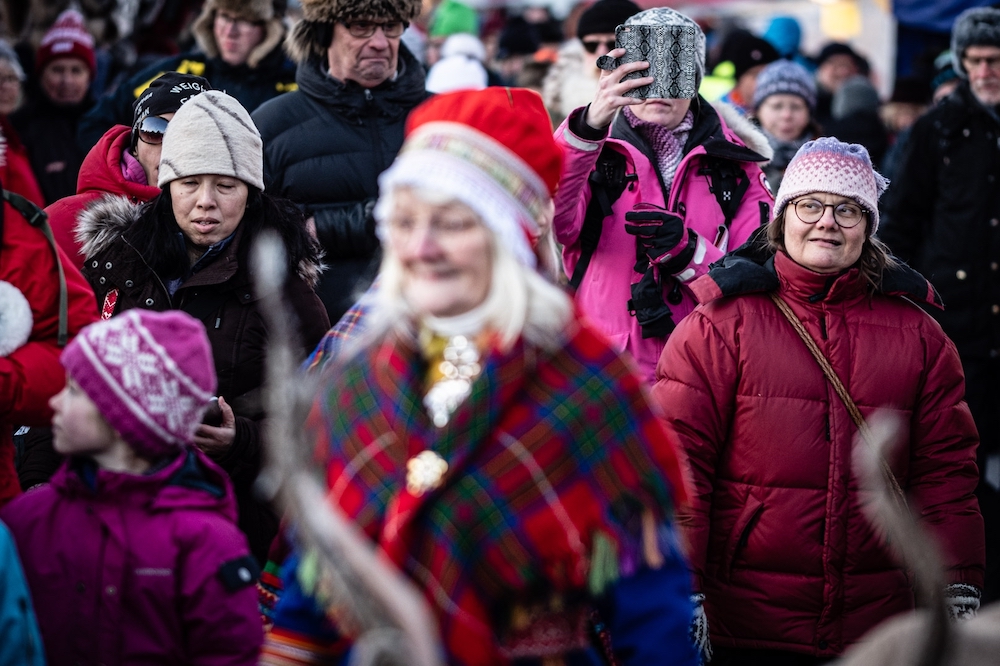A 400-year Sámi tradition goes digital to survive coronavirus
Since 1605, Sweden’s Jokkmokks Marknad has been an important winter gathering for the Sámi. Going virtual this year is allowing the tradition to stay alive.

Jokkmokks Marknad might be one of the oldest survivors of COVID-19. The annual market held in its northern Sweden namesake town will take place this week for the 416th year running, though not without a little help from technology.
Begun in 1605 at the behest of King Karl IX, the market was originally a means to collect taxes on winter trading among the Sámi that, by some accounts, dates as far back as the 1300s. Today, the three-day gathering is as much a cultural event as it is a place for traders, particularly since it often coincides with Sámi álbmotbeaivi, the national day, held on February 6.
Running nowadays from the first Thursday to the first Saturday of February, Jokkmokks Marknad has, in recent years, brought as many as 80,000 people to Jokkmokk (pop. 3,000). That makes it Sweden’s largest winter festival, but it also makes it a rich environment for spreading illness, and a no-no during a pandemic. Even in a normal year, locals say they notice an increase in colds and flu in the days after the market.
[A new innovation competition seeks to engage youth in transforming the Arctic economy]
So in October, when Sweden’s government limited the size of public gatherings to 50 (since lowered to eight), the local authority had no choice but to cancel the market in its physical form.
Moving Jokkmokks Marknad online will allow it to keep its unbroken streak, but it may also have a few other benefits. Increased exposure is one, since more people than ever will be able see what Jokkmokk is all about. In addition to live-streaming events like the official opening on Thursday and daily church services, the festival has pre-produced 20 or so videos about the region and its people, replicating part of what people go to Jokkmokk to experience.
It also means tourism boosters can breathe a sigh of relief; having Jokkmokk linked to a packed superspreader event would run counter to their efforts to promote the town and its surroundings as a place where they can get away from the crowds.
As for the market itself, merchants hope going digital means they will still be around to see the 417th gathering. Many of them take in a significant part of their income during the Jokkmokks Marknad. About 30 or so are taking part in an online marketplace that, in addition to traditional click-and-buy options, will also feature live-shopping events that give viewers the chance to watch as they hawk their wares.